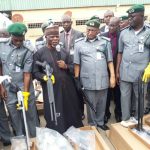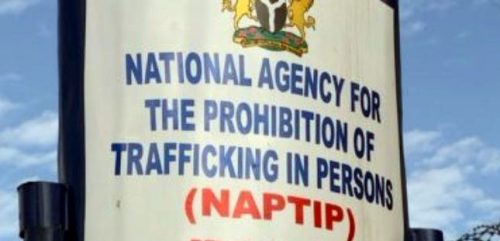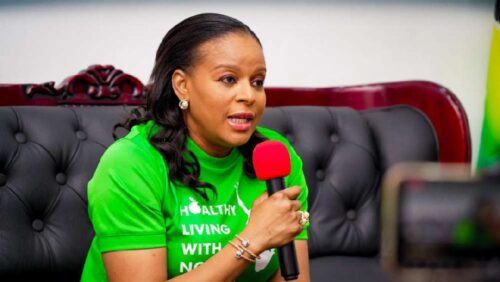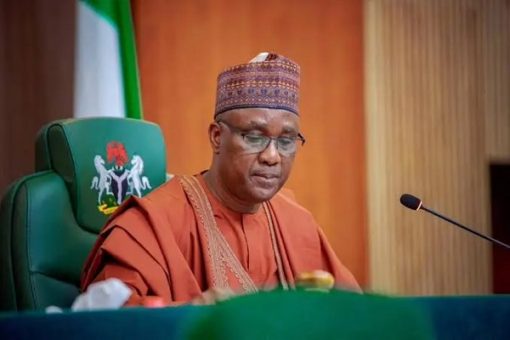Electricity: Shocking, as millions of Nigerians are yet to be metered
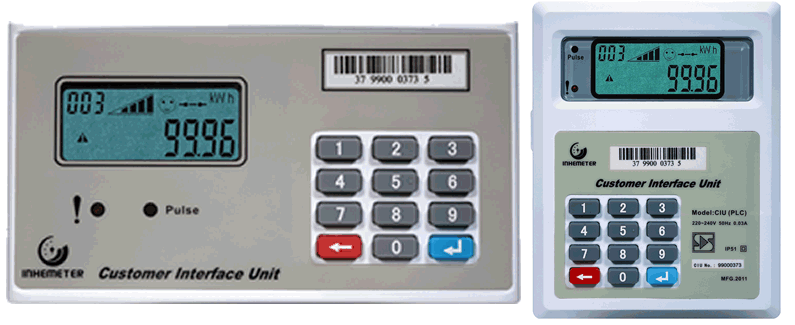
* NERC says about 4m people metered
* Edo community drags TCN, others to court
Despite the privatization of the electricity sector by the Federal Government, which has since seen new operators, generating companies (Gencos) and distributing companies (Discos), many Nigerians are yet to be metered.
Currently, Nigeria’s population, according to the 1996 Census figure, stood at 170 million people. Many communities, homes and offices are still challenged by inadequate electricity supply or lack of it, making businesses and social activities suffer, despite assurances by the operators to add value to Nigerians.
Consequently, out of about 7, 476, 886 electricity customers in the country, only 3.45 million have been metered, while 4, 025. 611 are still unmetered. The Nigerian Electricity Regulatory Commission (NERC) stated this on Wednesday.
This is just as it proposed introduction of a “Modified CAPMI,” to fast track metering process.
The Commission stated this at the final day of stakeholders’ consultation it held in Abuja, for the North central zone on MYTO Methodology, Business Continuity, and Eligible Customer Declaration.
Credited Advance Payment for metering Implementation (CAPMI) is a willing-customer financing scheme initiated by NERC in 2013, which allows electricity consumers who are yet to be metered by the electricity distribution companies (DisCos) to finance the procurement of their meter and be repaid over time through deductions from their monthly bills as against the provision of the law which gave the monopoly of procuring, installing and managing meters to the DisCos.
However, some bottlenecks identified with the scheme forced the NERC to abolish it when it issued a deadline of 1st November, 2016, for the 11DisCos to discontinue the practice.
Part of the proposal which generated a long heated debate on the floor, was the recognition of middlemen to be known as Meter Service Providers (MSPs) who would provide and monitor the procurement, installation and management of meters, thus taking the responsibility off the shoulders of the DisCos.
Explaining the rationale behind the proposal, NERC said it would quicken the metering step thus closing the existing gap in no time.
It also said this would eliminate meter by-passing, as well as energy theft due to the enhanced vigilance and monitoring by the MSPs, while guaranteeing revenue protection for the DisCos and repayment to customers.
Most of the stakeholders spoke in favour of the consumers paying with the guarantee of getting the meter immediately instead of what they claimed have been the practice where many Nigerians were made to pay, though against the rule, and cannot get meter for up to two, three years.
While urging that painstaking enumeration be conducted quickly to know the true number of customers as many believed that the figure given by NERC was too small looking at the size of Nigeria, some speakers argued that the liquidity challenges being faced in the industry is not as a result of low or non-cost reflective tariff but the inability of the revenue collector, the DisCos to collect at least a great percentage of the monies owed from customers.
They, however, urged that consideration be given to the so many members of the masses who are so poor and cannot afford to pay for meter, especially residents of low brow areas in the regulation.
Stakeholders agreed that NERC ensures that reliable and easy data collection mechanism that would give unambiguous information on how energy is consumed and calculated is embedded in the meter technology.
Meanwhile, landlords and residents of Etete and Evboriaria communities in Oredo Local Government Area of Edo State whose houses are affected by the installation of high tension cables over their buildings by the defunct National Electric Power Authority, NEPA, and the Power Holdings Company of Nigeria, PHCN, have dragged the Nigeria Electricity Liability Management Company Ltd, NELMC; Transmission Company of Nigeria, TCN; and five others to court.
They are alleging negligence, inhuman and improper conduct and grave hazard inimical to their safety and well-being. Others joined in the suit are the Federal Ministry of Power, Benin Electricity Distribution Company Plc, Attorney-General of the Federation, Attorney-General of Edo State and Edo State Ministry of Environment and Sustainability.
Plaintiffs in the suit filed at the Benin Division of the Federal High Court by their counsel, Olayiwola Afolabi, are, Mr. Gabriel Osagiede, M.I. Amajuoyi, Osaseri Friday, Madam Beatrice Aguebor and Augustine Igbinobaro for themselves and the landlords/residents of the affected communities.
The plaintiffs’ claim against the defendants jointly and severally including a declaration by the court that the installation and continuous erecting/mounting and transmission through the high tension wires and cables by the 1st, 2nd and 4th defendants over their houses already in existence before the aforementioned installations constitute a grave hazard, high degree of negligence, inhuman and inimical to their health and well-being.
In a witness deposition on oath by Mr. Gabriel Osagiede and M.I.Ajuoyi for themselves and other landlords/residents, they averred that between 1970 and1975, they had built their houses and were already living there before the defunct NEPA came in 1980, trespassed and had continued trespassing on their communities and commenced the installation of 330 KV high tension wires over their houses.
They said that when they resisted the move, some of them were arrested and put into detention by the Edo State Police command but at the Police Headquarters, officials of the defunct NEPA deceitfully assured them that the said installations poses no danger to them and their well-being.
Also, the Nigerian Nuclear Regulatory Authority (NNRA), in its relentless effort to empower its staff with skills and knowledge to perform its regulatory functions to align with international standards, has collaborated again with the International Atomic Energy Agency (IAEA) to organize a training workshop for its staff on legislative and regulatory framework for Nuclear Power Programme in Abuja.
The workshop was aimed at discussing various regulatory approaches, regulations and guides development plans, and provide guide for licensing processes for nuclear power plants.
It also covered the establishment and implementation of regulatory framework for safety, review and assessment of the applicant’s submission, authorizations of nuclear facilities, inspections and enforcement guidelines and capacity building of the regulatory staff.
Experts handling the training workshop are Zia Shah from IAEA, Peter Bester from South Africa, Majid Akhtar from Pakistan and Iuril Iesypenko from Ukraine.
The vast experiences of the experts were shared throughout the workshop, giving deep insight to practical experiences of other countries especially as it pertains to the licensing processes and management in their respective countries.
A total of 41 participants drawn from various departments of the authority attended the training which held from the September 11 to 15, 2017, at the NNRA head office, Abuja.
It is expected that at the end of this workshop, participants would come away with useful lessons on Legislative and Regulatory Framework for Nuclear Power Program.
Nigeria, and in particular NNRA, have benefitted from workshops such as this, as a result of organizing such mutual assistance programmes as the IAEA, in its relentless effort at improving the regulatory framework of member-states.
Simon Ugwu


